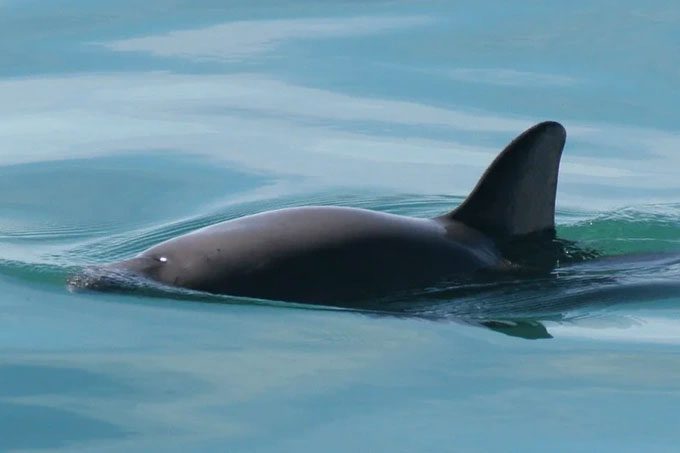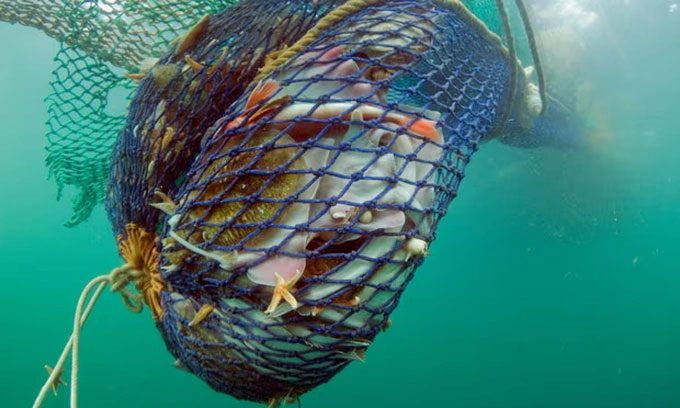“Despite nearly 30 years of repeated warnings, gillnets are still being used in a desperate effort to save the Vaquita,” Dr. Porter stated.
In the context of climate change and increasing habitat loss, extinction has become a real threat that countless species worldwide face.

Only 10 Vaquita individuals survive. (Photo: Getty).
Recently, the International Whaling Commission (IWC) issued its first extinction warning in its 70-year history for the Vaquita – the smallest marine mammal.
According to Dr. Lindsay Porter, Vice Chair of the IWC, there are currently only 10 Vaquitas remaining in the Gulf of California, down from 30 recorded in 2017.
The reason for this decline is the increasing use of gillnets, a flat net specifically used for the illegal capture of totoaba fish.
These fish are then sold on the black market in China for a lucrative profit. However, this practice has pushed the Vaquita to the brink of extinction.

Fishermen using gillnets for widespread fishing threaten Vaquitas – the smallest marine mammal – with extinction. (Photo: Getty).
“Despite nearly 30 years of repeated warnings, gillnets are still being used in a desperate effort to save the Vaquita,” Dr. Porter stated.
According to this expert, multinational governments have come together to implement various measures to help save the Vaquita, as well as to conserve their ecosystem.
Among these measures is a campaign to relocate them to a marine sanctuary. Here, the surviving individuals will be specially protected and kept in captivity.
They refer to this as the Zero Tolerance Area (ZTA), which consists of 193 concrete blocks built to prevent the use of gillnets for fishing. Theoretically, this measure has reduced gillnet activity in the area by 90%.
However, the Vaquita population and other marine species outside the ZTA continue to be threatened by human fishing activities.
The IWC calls on global organizations to implement a 100% ban on gillnet fishing and to create safe, sustainable alternatives.
These efforts aim to protect the livelihoods of fishing communities while providing hope for the recovery of the marine ecosystem.


















































